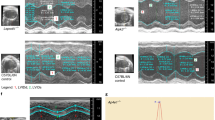Abstract.
From a handful of uncloned genetic loci 6 years ago, great strides have been made in understanding the genetic and molecular aetiology of Bardet-Biedl syndrome (BBS), a rare pleiotropic disorder characterised by a multitude of symptoms, including obesity, retinal degeneration and cystic kidneys. Presently, 11 BBS genes have been cloned, with the likelihood that yet more BBS genes remain undiscovered. In 2003, a major breakthrough was made when it was shown that BBS is likely caused by defects in basal bodies and/or primary cilia. Since then, studies in numerous animal models of BBS have corroborated the initial findings and, in addition, have further refined the specific functions of BBS proteins. These include roles in establishing planar cell polarity (noncanonical Wnt signaling) in mice and zebrafish, modulating intraflagellar transport and lipid homeostasis in worms, and regulating intracellular trafficking and centrosomal functions in zebrafish and human tissue culture cells. From these discoveries, a common theme has emerged, namely that the primary function of BBS proteins may be to mediate and regulate microtubule-based intracellular transport processes.
Similar content being viewed by others
Author information
Authors and Affiliations
Corresponding author
Additional information
Received 20 April 2006; received after revision 30 May 2006; accepted 15 June 2006
Rights and permissions
About this article
Cite this article
Blacque, O.E., Leroux, M.R. Bardet-Biedl syndrome: an emerging pathomechanism of intracellular transport. Cell. Mol. Life Sci. 63, 2145–2161 (2006). https://doi.org/10.1007/s00018-006-6180-x
Published:
Issue Date:
DOI: https://doi.org/10.1007/s00018-006-6180-x




